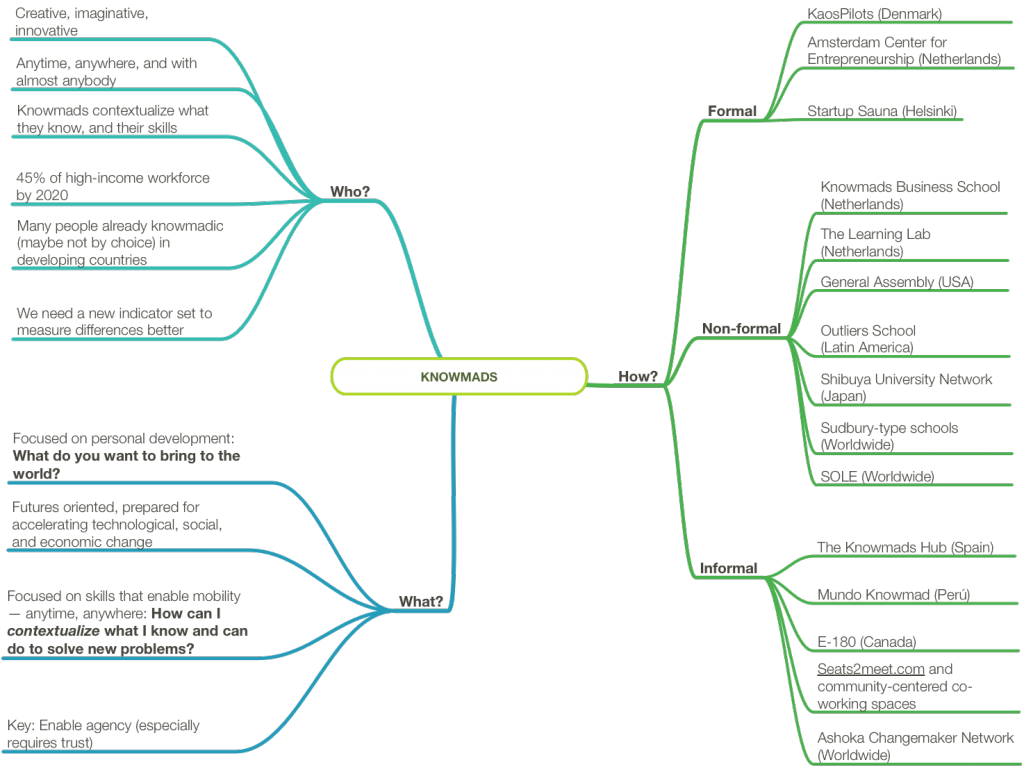John Moravec at the World Bank: Knowmadic futures for youth
“What do you want to bring into the world?”
For media inquiries, contact:
hello@educationfutures.com
For media inquiries, contact:
hello@educationfutures.com

Youth are the main consumers and participants in education. Despite intimate knowledge of the successes and failures of modern education, youth rarely become architects, shapers, or producers of a system that is built on their behalf. The World Bank Group’s Youth Summit 2016 sought to bridge that gap, giving youth an active voice in creating the vision for the future of education.
Speaking at an invited plenary session, Education Futures founder Dr. John Moravec noted:
Inside and beyond formal organizations, we’re seeing a new type of worker emerge. And they are becoming visible in our shift from industrial work to creative and innovative work.
This is a world where our fundamental relationships are becoming much more complex and creative; where we seek out synergies; where our worldviews are designed together; where change happens so fast, we can’t keep up; and, where these changes are occurring on a global level. The people that can navigate these spaces are knowmads – creative, imaginative, and innovative people who can work with almost anybody, anytime, and anywhere. They create new value, contextualize what they know and what they can do to solve new problems. We see them as freelancers, contract workers, and even as intrapreneurs – mainstream employees taking risks within organizations to create positive, new value. When they cannot create new value, it is time to move on — and mobility created by the global economy and social and knowledge networks makes this happen.
Moravec’s talk is summarized as a mind map:

The Youth Summit was established in 2013 by the World Bank Group, in partnership with the Office of the United Nations Secretary-General’s Envoy on Youth, to provide a platform for the concerns of youth and empower young people to promote their ideas on development. Outputs from the summit are intended to inform the development of the next World Development Report and influence youth-oriented policy development around the world.
Education Futures LLC
+1 612-234-1231
hello@educationfutures.com
Subscribe to our newsletter
Follow us on: LinkedIn | Facebook